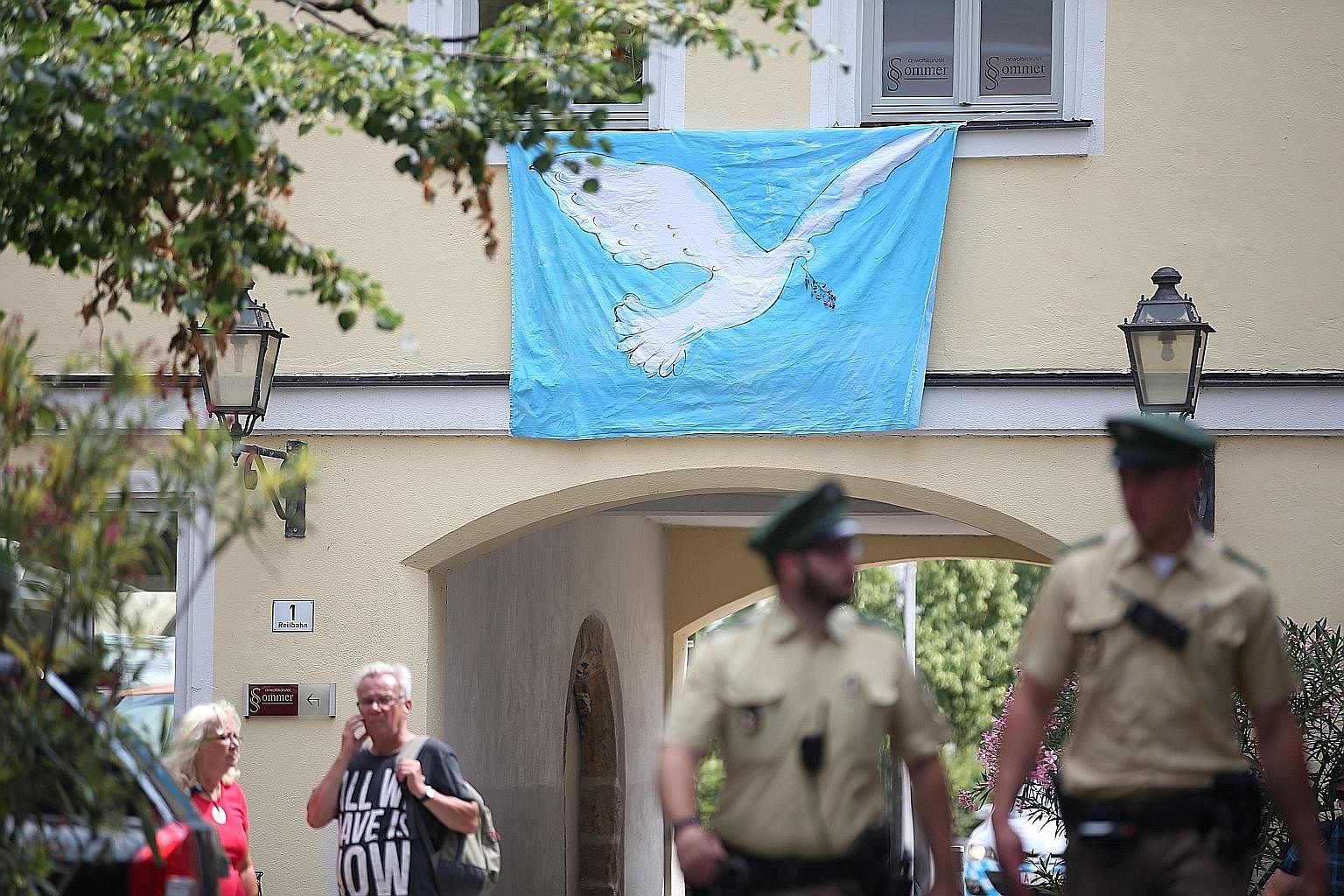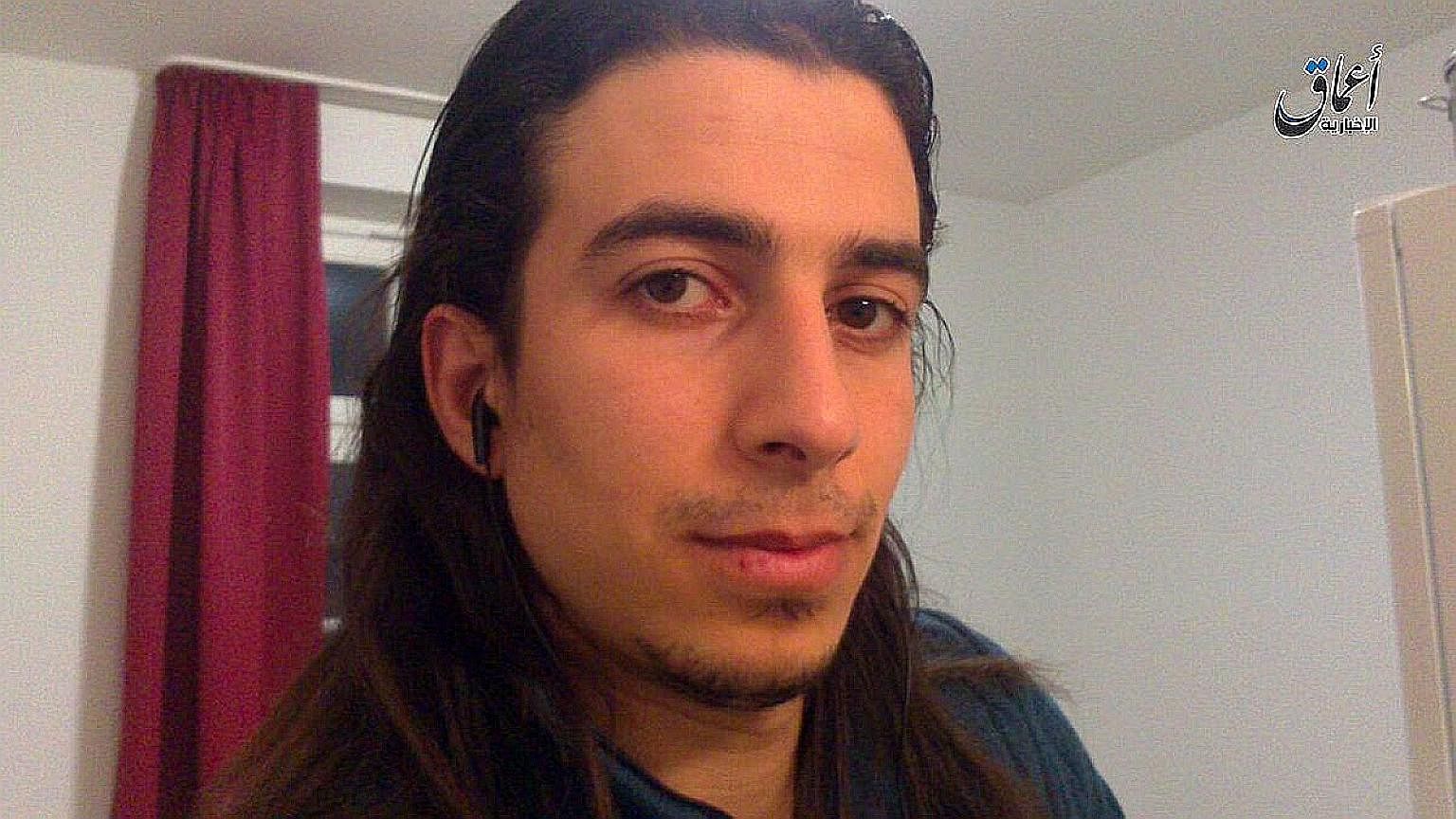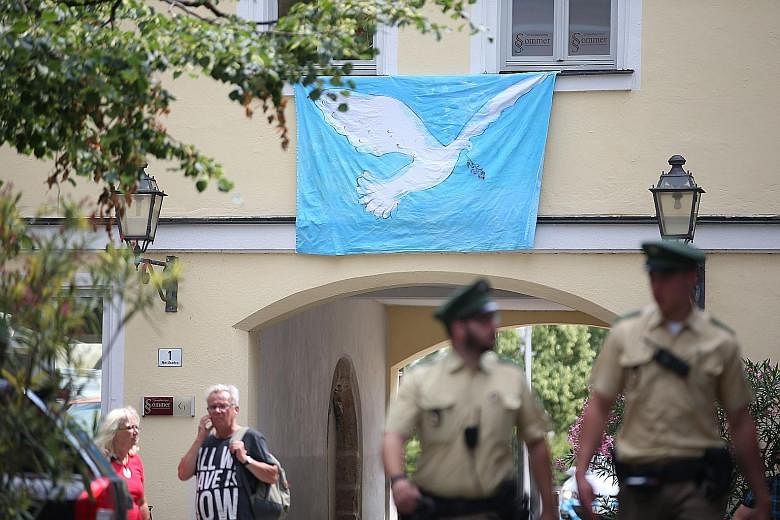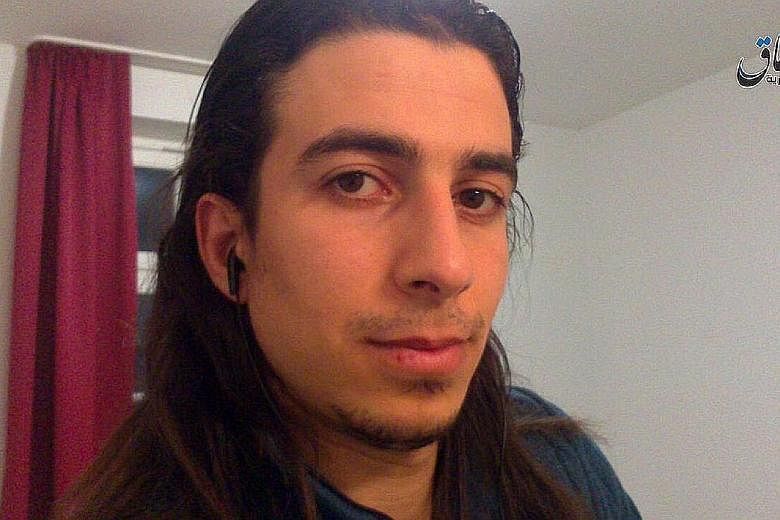Germany's Interior Minister Thomas de Maiziere has ordered the police and security services to boost their presence at airports and train stations and carry out stop-and-search operations across the country after a Syrian asylum seeker who blew himself up outside a music festival was identified as a supporter of the Islamic State in Iraq and Syria.
But Sunday's bombing - the fourth violent attack to strike Germany in less than a week - has prompted an acute sense of anxiety, raising serious doubts about the country's readiness to deal with an elevated terrorist challenge. Similar questions are being raised in neighbouring France, where a national consensus about the appropriate strategy to confront terrorism has already broken down.
Germany prizes stability and predictability above all else, and its politicians shy away from hurried initiatives which smack of panic. Throughout the latest crises, including the siege in Munich last Friday in which nine people were killed and more than 30 wounded by a mentally disturbed gunman, Chancellor Angela Merkel remained firmly out of sight. It was behaviour unthinkable from the leader of any other European country faced with a similar situation, but it worked for the Germans, since they trust the efficiency of their state and don't expect politicians to talk unless they have something to say.

Still, the tragic events have revived awkward questions about Dr Merkel's refugee policy, and specifically her decision last year to welcome more than a million asylum seekers. Three of the four violent attacks were perpetrated by recent immigrants. And, as the hugely influential Frankfurter Allgemeine daily put it yesterday in an editorial, Germans demand that their government somehow "puts an end to the madness".
The attacks are also shedding an unfavourable light on the way Germany processes foreigners. The terrorist who blew himself up trying to kill as many people as possible at the music festival was a Syrian who had been denied asylum but somehow still managed to remain in Germany. He belonged to a group of would-be migrants whose status is locally referred to as "Duldung", the German word for toleration. The group includes people whose presence is tolerated either because they destroyed their identity papers so nobody knows where to send them, or because their home country won't take them back.

Revelations that their country hosts at least 155,000 "Duldung" migrants have astonished ordinary Germans and raised doubts about Chancellor Merkel's claim that only migrants deserving protection would be allowed to stay. It now turns out that most others are still not turned away.
Mr de Maiziere claims he has all the resources needed to cope with the current challenge. But the events are a boon to the far-right, anti-immigrant Alternative for Germany movement. Its demands for the introduction of "effective border controls" and the immediate expulsion of "criminals" could resonate well with an increasingly traumatised German electorate facing a general election in a year's time.
In France, which will also hold polls next year, the fight against terrorism is now a key electoral issue, for the recent attack in Nice, which killed 84 people and injured a further 300, has shattered a national consensus on how to deal with such matters.
A senior security official in Nice has accused the national government in Paris of attempting to falsify the number of
policemen who were on duty on the night of the terrorist
attack, allegedly to give the impression that adequate safety had been provided.
French Interior Minister Bernard Cazeneuve has strongly denied the allegations.
President Francois Hollande tried to defuse the row, saying on Monday that investigators will establish the truth based on "the law and no one else", adding: "Truth and transparency are essential in a democracy."
However, Mr Cazeneuve is also being criticised by Parliament which has just published a report claiming that the country's six intelligence agencies do not communicate well with one another and are therefore failing to exploit useful leads on terrorists.
Lawmakers are demanding the creation of a single French counter-terrorism body.
"Faced with the threat of international terrorism, we need to be much more ambitious in terms of intelligence," said Mr Georges Fenech, the author of the critical parliamentary report.
But with dismal approval ratings and his term rapidly reaching its end, Mr Hollande is in no position to adopt radical counter-terrorism measures; instead, he and his officials are getting used to being booed wherever they go. And all this is welcome news for Ms Marine Le Pen, leader of the anti-immigrant National Front, who now leads in voters' preferences in the presidential elections scheduled for April.
Traditionally, this is the time for most French and German politicians to pack their bags and go on summer holidays. This year, however, many of them will do so nervously, fully anticipating a return to their capitals should another crisis strike.


